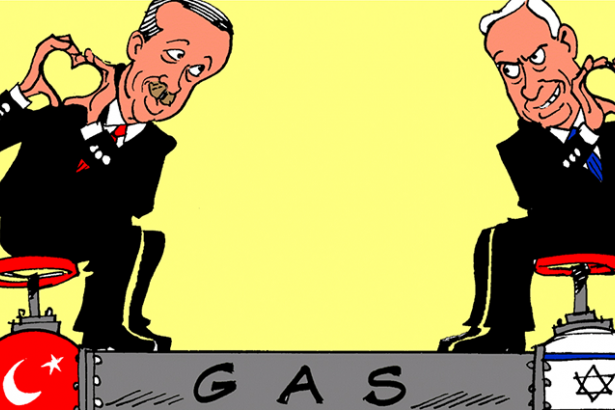Israel-Turkey gas pipeline to be ready in 3 years, Israeli authority says

Israel’s General Director of National Infrastructure, Energy & Water Ministry Shaul Meridor making statements at the Atlantic Council İstanbul Summit on economy and energy issues said that "the pipeline for gas to Turkey is a fructuous export opportunity for Israel. Israeli gas could be in Turkey within 2-3 years".
Ron Adam, who is the Special Envoy to the Ministry of Foreign Affairs of Israel, is also among the participants at the Summit.
US-based think tank the Atlantic Council is holding the 8th summit this year in İstanbul on April 27-28 under the theme of "Strengthening the Transatlantic Engagement with a Turbulent Region". In the Summit where critical issues to be talked over, sessions will be held to discuss energy politics, energy security and critical infrastructural issues as well as geopolitical developments, security, economic growth and trade.
The participants to the Summit are as follows: Turkey’s Energy Minister Berat Albayrak, Qatari Minister of Energy and Industry Mohammed Al Sada, Undersecretary of the UAE Ministry of Energy Matar Al Neyadi, Israel’s General Director of National Infrastructure, Energy & Water Ministry Shaul Meridor, the Special Envoy to the Ministry of Foreign Affairs of Israel Ron Adam, Acting Special Envoy for the Bureau of Energy Resources of the USA Mary Warlick, the former Special Envoy International Energy Affairs of US Department of State Amos Hochstein, Belarusian Deputy Energy Minister Vadim Zakrevsky, and the former Minister of Energy and Mineral Resources of Jordan Malek Kabariti.
The Summit is also attended by the top executives of international energy companies such as the British multinational oil and gas company the British Petroleum (BP), Dana Gas headquartered in United Arab Emirates, Israeli-based energy and infrastructure company Delek Drilling, the US-based Noble Energy and Chenniere, Naftogaz of Ukraine and the Dutch headquartered EWT.
The summit will cover particular regional and international issues affecting the agenda of global energy such as global and regional energy profiles, the future of energy management, strengthening the regional cooperation and trade in the Eastern Mediterranean, diversifying the natural gas supply to Europe, the channels for the regional and intercontinental energy markets, expansion of sustainable energy and Turkey, the Southern Gas Corridor which are planned infrastructure projects aimed at improving the security and diversity of the EU’s energy supply by bringing natural gas from the Caspian region to Europe.
‘NORMALISATION’ IN TURKISH-ISRAELI RELATIONS THROUGH THE MATCHING INTERESTS
Israel and Turkey had started a “normalisation process” last year. One of the most significant elements of this "normalization process" was energy issue between Israel and Turkey indicating a matching interest for both countries. While Turkey desires to make a deal for offshore natural gas resources in Eastern Mediterranean, Israel is seeking new markets to both processes its huge natural gas reservoirs, Leviathan and Tamar, throughout the Mediterranean coasts, and export petroleum and natural gas in the occupied Golan Heights. Thus, it is possible that Israel aims to change the energy geopolitics of the Middle East and the whole world to secure its new position in the region and international system.
Another dimension of the regional cooperation between Turkey and Israel is possible mutual interests in Syria. Both countries are against the Syrian government and support Islamist and jihadist militants under the name of so-called ‘rebels’. Israel also wants to use ongoing Syrian war in the region to pursue its interest over occupied Golan Heights containing energy resources. In this respect, "normalization process" and reconciliation between Turkey and Israel which are two leading allies of the United States, can be traditionally considered as an American interest, while Washington is currently against a more extensive instability in the region.



